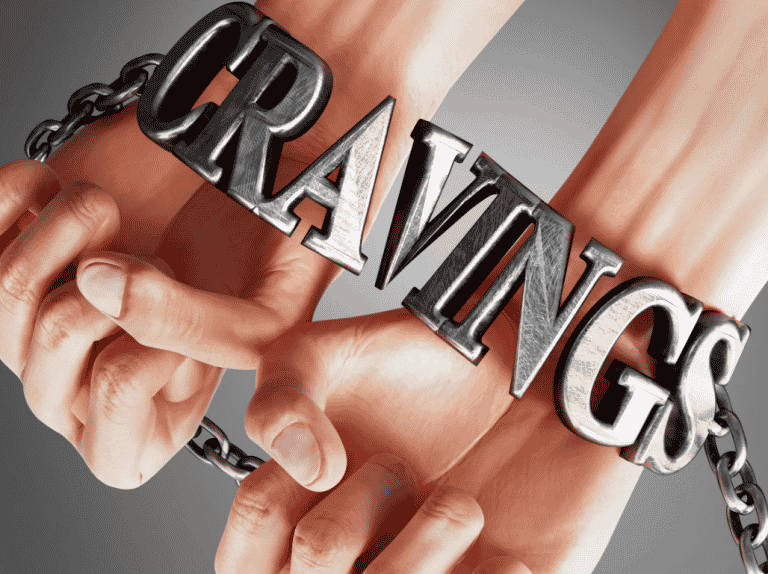If you know what to do about cravings, they’re not so bad
The first thing to know about cravings is that they are a normal part of quitting anything. While I’m writing about drug and alcohol cravings here, the rules apply for all cravings–cigarettes, food, gambling, compulsive spending, etc. If you go into recovery from alcohol and drugs, expect cravings and expect them to last for a while. I’m not trying to scare you, I’m preparing you for reality. The second thing to know about cravings is that they usually only last for 15-20 minutes. That is important information to have because the answer is often distracting yourself for a few minutes until the craving passes. And, it will. They always do. Always, but you have to use your tools.
Tools to manage cravings
- Don’t panic. Know it’s normal and make a list of things to do to get you through
- Distract yourself with things from your list like:
- Exercise
- Walk the dog
- Examine your mood and feelings to see if you’re triggered
- Journal and play the tape through (how will drinking or using end?)
- Watch a show, read a book
- CALL SOMEONE SAFE who will talk you through it
- Go to a meeting if you practice 12 step or any group recovery
- Call a newcomer or someone else you know might be struggling
Tools to manage STRONG cravings
OK, the fact is, some of us need more than a walk around the block to manage cravings and that is OK too! So, for my friends who are chronic relapsers or just need a little more support here are some other ideas.
1. Know your triggers and avoid them at all costs
Feel like drinking when you pass bars in the Summer? Don’t walk by them! Change your route and keep that noise and smells away. Does someone in your family or an ex drive you to drink? Then now is the time to stay the hell away. Block those numbers. It may not be forever but for now, it might help. Friday nights the issue? Make safe plans. You’re an adult, you know the right thing to do, and now is the time to do it. Call your sponsor, keep your “why” reasons close, just stay on the path.
2. Substitute Activities
This goes beyond a distraction activity like working out or taking a walk. This is planning for trouble and scheduling your life accordingly. If you liked to start partying on Thursday nights, take a class Thursday night. This is the time to commit to another activity during that time like a cooking class or a new hobby that you will derive pleasure from that will ultimately become a substitute activity for drinking or using. I’m a big believer in weekend recovery meeting commitments, especially in the morning. If you are expected to be somewhere in the morning, you will think twice about going out the night before. Want to take it to the next level?? Volunteer. I do and it changed my life. Both because I became invested in the people I help and it makes me feel like a better person.
3. Medications (MAT Medication-Assisted Therapy)
This is best for people who really can’t stay sober any other way. I’m not the biggest fan of medication-assisted therapy but it does work for many people. If it’s the difference between being out on the street using illegal narcotics or MAT, choose MAT. The chance of using Fentanyl-laced drugs is too great to take chances. Call a doctor who knows about addiction recovery and can help determine if you need some medications in your life. For some, a simple anti-depressant or beta-blocker can make all the difference in the world. For others, step down with MAT drugs can be successful.
4. Sober living and sober companions
You make not like this option but if you absolutely can not stay sober and desperately want to then supervision and drug testing can be the answer. There are a million types of sober companions and sober livings that will work with you to make sure you are safe at all times. Those options are usually necessary for a minimum of 30 days and often carry on for up to six months. But, they will give you the time to get used to living a sober life without feeling the burden of making every decision yourself.
Recovery and managing cravings is a science. If you find a life and activities that are just as good as using was, then recovery becomes much easier. Give yourself the gift of figuring out what you like to do and then go do it. You’ll be happier and healthier.
More Articles To Read
Growing Up In Recovery After You Get Sober
5 Tips To Create The Recovery Lifestyle
6 Ways To Feel Good With The Recovery Lifestyle
Check out my book 100 Tips For Growing Up
Follow us on Instagram
Like us on Facebook
Comment on our posts





















